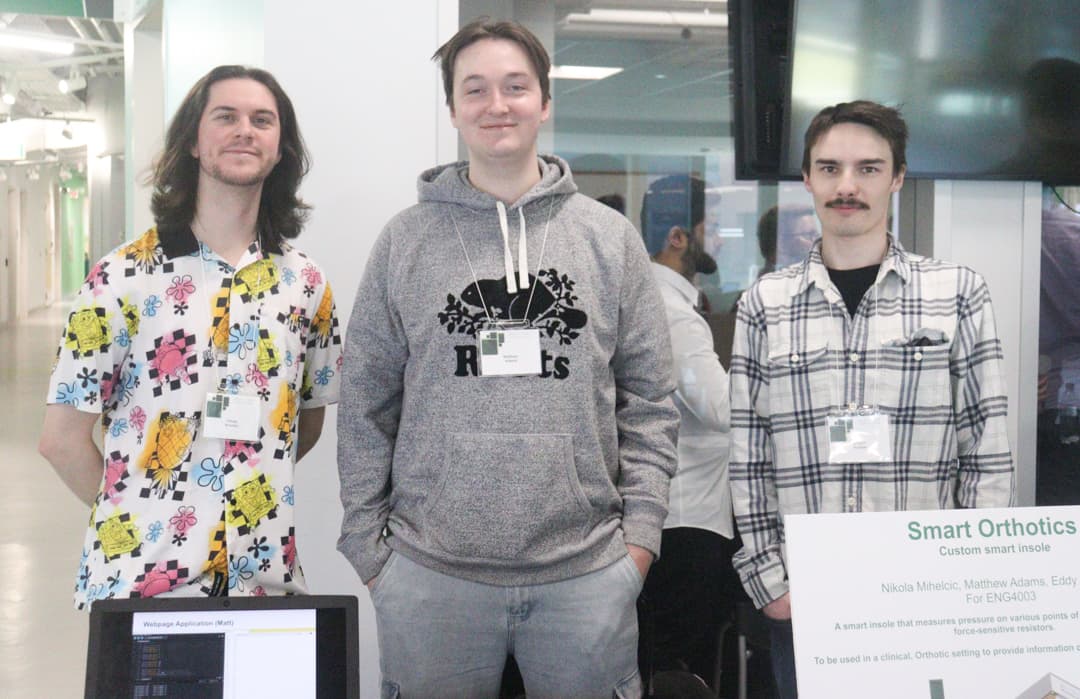Orthotics invention piques interest at Re/Action event

When Nikola Mihelcic, Matthew Adams and Eddy Phillips, graduating electrical engineers students, were assigned to help their client by working on their project for months, they quickly realized there was a huge problem.
They didn’t know how to program the device.
At table one in the Dare District on April 14 at the Re/Action event, the group demonstrated that they’d solved their problem when they presented their fully coded, and working invention called Smart Foot Insoles. The device measures pressure on various points of a person’s foot using force-sensitive resistors.
Their group was just one of many who worked together to build and create technology of the future to show their innovation.
The event, hosted by Matthew Jerabek, associate manager in marketing and systems for the experiential learning & innovation office of Algonquin College, saw a variety of research projects around innovative technology.
The team explained their project to a number of attendees on Friday.
The insoles are to be used in a clinical, orthotic setting to provide information on standing and walking patterns, so your doctor can prescribe you the perfect insole for your shoes.
The process works by diagnosis through walking tests. It accurately looks for the problems in your feet. For example, your arch or heel, and then you are prescribed an insole based on hard-data, instead of mold or visual tests by your doctor.

Mihelcic, Adams and Phillips were assigned as group members and given the project by their coordinators.
After forming a team, they met their client, Christopher Kraft of Ampos Orthopaedics Inc, to learn about what he wanted to see them make.
Set off to work, they still had to program.
That’s when Adams stepped in and did the programming all by himself.
“Matt hard-carried in the programming and website,” said Mihelcic. “He showed us how it worked.”
Once they finished the project, they showcased the data on the website. Kraft was very happy with what they made.
“We love our client, he’s really nice,” said Phillips.
“We’re super proud of it,” said Mihelcic. “At the end of the day, we’re really happy with what we got and what we made.”
Everyone believed they did a good job with the time they had, and found the experience useful.
“It was a great experience,” said Adams. “It gives a lot of work experience.”
The team have made plans for post-Algonquin with all the valuable knowledge they’ve learned in their program.
“The project was great for building teamwork skills, and I really enjoyed the experience with my group,” said Phillips.
Mihelcic wants to go into the design field after his time here. He would like to improve his automation skills too.
Adams hopes to work in utilities. “I would like to work for something like Hydro One,” Adams said.
Phillips plans to bridge to Lakehead University where he will finish his electrical engineering degree and gain a lot of automation skills.








